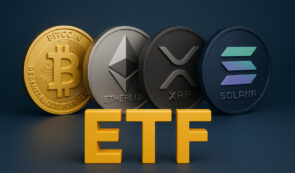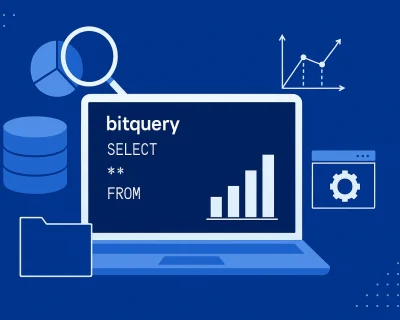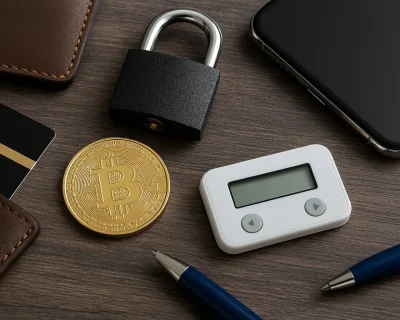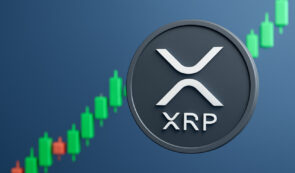Bitcoin ETFs Must-Knows for 2024
Forget HODLing and managing crypto wallets; 2024 improves things, especially with the most awaited approval of Bitcoin ETFs! Gone are the days when investors navigated complex exchanges, stressed about security risks or the FOMO over potential gains.
As of January 2024, the widespread global adoption of Bitcoin ETFs stole major investors’ hearts and became the most awaited topic for driving financial initiatives to the roof. Not to mention that BTC is the original crypto and has gained global adoption, its use cases expanding more than ever, from Bitcoin ATMs to retail merchants accepting Bitcoin as a payment method, leaving us to wonder what the future holds.
However, before jumping headfirst, it is highly advisable to decode the Bitcoin ETF’s must-knows to ensure a game-changer approach, especially when, in 2024, digital asset adoption is on the rise.
Key Takeaways:
- A Bitcoin ETF makes it easier for investors to gain exposure to BTC’s price moments, thus capitalizing on it.
- There are two types of BTC ETF: Spot ETF, in which Bitcoin is owned, and Futures ETF, whereby investors gain exposure by investing in crypto futures contracts.
- ETFs offer less control over trading decisions than directly owning the underlying asset.
What is Bitcoin ETF?
Before jumping into Bitcoin ETFs, it is essential to understand what exchange-traded funds are and how to harness their power better. As such, an ETF is an investment company registered with the SEC. Thus, the shares must also be registered. You could say that ETFs are similar to mutual funds, whereby they pursue specified goals through professional management.
First, consider ETFs as investment vehicles that track a market index, commodity, stock, bonds, or other financial assets. Moreover, ETFs can be structured to track the price of a single asset or follow a group of assets and can be bought and sold on stock markets.
A Bitcoin ETF is an investment strategy based on the exposure of Bitcoin’s price movement on the market without owning the asset. Additionally, the Bitcoin ETF allows investors to trade Bitcoin without holding the underlying asset.
Bitcoin ETFs Types: Spot and Futures Contracts
The Spot Bitcoin ETF offers investors new investment objectives and a way to buy shares with proportional ownership of the BTCs to invest directly in the digital asset. A significant benefit the spot Bitcoin ETF offers is enhanced liquidity, thus leading towards stable prices and easier price discovery on the market.
Indeed, spot Bitcoin ETFs could have increased expenses for securing and trading Bitcoin, yet they offer lower barriers to entry into the crypto market. As such, investors buy shares in a spot Bitcoin ETF, and they buy a share of the fund’s Bitcoin holdings.
As of January 2024, the U.S. Securities and Exchange Commission approved the first spot Bitcoin ETFs with the approval of BlackRock. Moreover, with this victory, BlackRock is the world’s largest ETF manager by AUM, managing $3.5T in ETF investment vehicles as of December 31, 2023.
Also, it launched iShares Bitcoin Trust (IBIT), a leading ETF firm that leverages Bitcoin and offers a new way for investors to diversify their investment portfolios.
The Bitcoin Futures ETF is a commodity pool that doesn’t hold any BTCs but gains exposure through derivative contracts based on its price on the market.
Also, Bitcoin futures contracts are expiring contracts that discuss buying or selling the underlying asset at a certain point in the future. The concept behind Bitcoin futures contracts is to offer investors convenient exposure without owning the underlying asset.
Bitcoin futures work by agreeing upon a specific price and date to sell or buy the digital assets, regardless of the market conditions. Meanwhile, the transfer of digital assets works through a contract with an expiration date agreed upon by both parties.
The first Bitcoin ETF was launched in Canada in 2021, and in November 2022, the ProShares Bitcoin Strategy ETF (BITO) became the first Bitcoin Future ETF authorized to trade on the U.S. markets.
Please note that this guide should not constitute any financial or investment advice and does not guarantee future results. We advise you to do your research or consult a professional before making any financial decisions.
Advantages of Bitcoin ETF
Bitcoin ETFs, whether it’s spot or futures, offer multiple advantages to all its investors and enthusiasts, such as:
1. Easy Access to the Market
It is well known that ETFs offer a more accessible way for all investors to acces Bitcoin without going through the hurdle of directly owning the currency, managing their crypto wallets, surfing on the crypto exchanges, or struggling with the private and public keys.
As a result, investing in Bitcoin is more accessible, regardless of Bitcoin futures contracts or spot Bitcoin ETFs.
2. The Diversification of the Crypto Investment Portfolio
ETFs cater to portfolio diversification, thus being an easy solution for investors to gain exposure to a group of assets. On the other hand, spot Bitcoin ETFs make buying and selling BTCs much easier with the help of a traditional brokerage account.
3. Liquidity
ETFs can offer more liquidity as investors can easily buy or sell the shares at the market rates compared to a direct investment. As such, it responds quicker to the crypto market fluctuation and significant price volatility.
4. Security and Regulatory Oversight
Security could be another aspect attracting people to ETFs, thus gaining widespread global adoption. We know that a purchased Bitcoin requires deciding where to safely store and secure your asset, whether a wallet or exchange, leading to additional risks and vulnerabilities.
However, Bitcoin spots and features ETFs are highly regulated financial systems and ensure transparency and investor protection, thus reducing the risk of hacking. Also, ETFs offer greater transparency than unregulated crypto exchanges, as seen from many incidents from the past years.
5. Bitcoin Tax Efficiency
Owning Bitcoin directly comes with a more significant cost, from management fees to potentially high trading costs and other tax reporting complexities, and may be impacted by Bitcoin tax laws.
While some tax issues have been sorted out in recent years, they can still be quite problematic for some investors. ETFs have been around for a while, and the tax laws are settled and straightforward. They could also have beneficial tax rules that prevent capital gains until the investment is sold.
Disadvantages of Bitcoin ETFs
Indeed, we have enjoyed the top 5 benefits ETFs offer investors, yet it’s time to move along and learn about some of the most common pitfalls. So, let’s start!
1. Crypto Volatility
A Bitcoin ETF is not immune to the crypto market volatility, and this is probably one of the first disadvantages since they can experience an increased price fluctuation in a short time frame.
For example, the price of Bitcoin could change by more than 10% in a day, which leads to an increase in unpredictability and involves significant risks.
2. Management and Operational Fees
Indeed, ETFs could offer you a seamless way to access Bitcoin. However, the management fees could diminish your gains over time since they must also pay taxes and fees for exchanging and securing Bitcoins.
However, the recent approval of the spot Bitcoin ETFs has led to a war of fees, thus reducing the costs on some ETFs to even 0.20%. However, not all Bitcoin ETFs have such low fees.
3. Bitcoin Tracking Errors
First of all, the BTC ETF’s performance is not the same as Bitcoin’s market performance, and as a result, there could be cost differences between the ETF’s share cost and the value of Bitcoin. Some influential factors could be market liquidity, management fees, and fund rebalancing.
Top Bitcoin ETFs in the U.S.
Crypto exchange-traded funds have been a hot topic among investors for years, and this is especially true as it concerns backing these funds with Bitcoin. With that said, it has been a long and challenging road to make them a reality.
The recent introduction of spot Bitcoin ETFs allowed them to be directly tied to the day-to-day movement of BTC prices. At this point, it is essential to look at the bigger picture to ensure future gains, as the constant changes of the government could impact the digital asset network’s ability to grow, develop, and respond to users’ challenges and inquiries.
Top 7 Bitcoin ETFs Of 2024
1. Grayscale Bitcoin Trust (GBTC)
- AUM: $28.6 billion;
- Expense ratio: 1.50%;
- Investing strategy: Spot Bitcoin;
2. iShares Bitcoin Trust ETF (IBIT)
- AUM: $2.7 billion;
- Expense ratio: 0.12%;
- Investing strategy: Spot Bitcoin;
3. Invesco Galaxy Bitcoin ETF (BTCO)
- AUM: $300.0 million;
- Expense ratio: 0.0%;
- Investing strategy: Spot Bitcoin;
4. Bitwise Bitcoin ETF (BITB)
- AUM: $623.1 million;
- Expense ratio: 0.0%;
- Investing strategy: Spot Bitcoin;
5. ProShares Bitcoin Strategy ETF (BITO)
- AUM: $1.8 billion;
- Expense ratio: 0.95%;
- Investing strategy: Bitcoin Futures;
6. Volatility Shares 2x Bitcoin ETF (BITX)
- AUM: $222.3 million;
- Expense ratio: 1.85%;
- Investing strategy: Leveraged Bitcoin Futures;
7. ProShares Short Bitcoin ETF (BITI)
- AUM: $76.6 million;
- Expense ratio: 0.95%;
- Investing strategy: Decline in Bitcoin Futures;
How to Invest in Bitcoin ETFs
All investors wishing to capitalize based on Bitcoin’s exposure and through the exchange-traded funds could adopt a well-known strategy listed by the Chicago Mercantile Exchange, BITO. This is considered amongst the safest strategies since crypto users can use Bitcoin’s price movement without holding the digital assets, thus also being a regulated approach.
Furthermore, BITO can be obtained with the help of different traditional brokerage platforms such as Robinhood, ProShares, and others. Investors only need to set up their accounts, decide on the number of shares, and set a price since the rest of the process is the same as they would buy other stocks.
How successful is such an investment? It all comes down to your strategy and your goals. For example, from a long-term perspective, Bitcoin futures ETF could not be your cup of tea since it could include a deviation from the net asset value, fund fees, and other expenses.
3 Bitcoin ETF Alternatives in 2024
Spot Bitcoin or futures contracts are not the only investment solution in these digital assets. As such, read further and discover three Bitcoin Exchange Traded Funds alternatives for 2024.
1. Invest Directly in Bitcoin
This is the first and most straightforward method to invest in Bitcoin. However, it is essential to understand how BTC works and select a crypto wallet or an exchange to make an informed purchase. Indeed, owning Bitcoin comes with greater flexibility, yet you expose yourself to government control
2. Cryptocurrency Company Stocks
Another way is by purchasing shares from an investment company such as Coinbase, Riot, and others, as they correlate with the market movement. Please note that such an approach comes with a degree of volatility.
3. Index-based ETFs
Finally, investors could approach the legacy ETFs like Grayscale Bitcoin Trust that have been on the market since 2013, long before the new hype of spot Bitcoin ETFs. This approach could be more satisfying since such companies have a proven track record and performance.
Whatever approach an investor chooses, it is advisable to weigh the pros and cons before investing to ensure their digital assets protection and future gains.
FAQ
How Do Bitcoin ETFS Function?
Bitcoin ETF works by tracking BTC’s value and trading it on traditional brokerage platforms, unlike crypto exchanges. As such, any investor could benefit from BTC’s price movement without directly owning the asset.
How to Buy Bitcoin ETF?
The easiest way is to find a trusting broker, advisor, or secure exchange to buy BTC ETF. However, to find the right platform, we advise you to look on CoinMarketCap’s Markets section and look for the exchanges that Bitcoin is listed on.
What Are the Risks Associated With Bitcoin ETFs?
If Bitcoin aligns with your investment strategies, you must know the potential pitfalls of Bitcoin ETF, including exposure to market volatility, possible market manipulation, higher fee structures, indirect ownership, and tracking errors.
Is owning a Bitcoin ETF the same as owning Bitcoin?
Please note that a Bitcoin ETF doesn’t mean BTC ownership, yet it still offers exposure to its value. Adopting Bitcoin into an investor’s portfolio could be the way to go to ensure big wins. However, how this is done could heavily impact your trading experience.
BTC ETFs are financial products that allow investors to profit from price movements. Nevertheless, owning BTC imposes multiple risks and comes with the hurdle of managing the crypto wallet, looking upon the smallest trading fees, and other procedures to gain from it.
Which ETF Is Best for Bitcoin?
For Spot Bitcoin ETF, you could choose between Grayscale Bitcoin Trust, iShares Bitcoin Trust ETF, Invesco Galaxy Bitcoin ETF, or Bitwise Bitcoin ETF.
For Bitcoin Futures, you could go with ProShares Bitcoin Strategy ETF, Volatility Shares 2x Bitcoin ETF, or ProShares Short Bitcoin ET.
Conclusion
Bitcoin ETFs could be an attractive investment option. It offers a way to benefit from Bitcoin investment without holding the tokens. It could also be a great way to attract more capital to crypto markets since they provide exposure to digital currencies in a more conventional investment vehicle.













